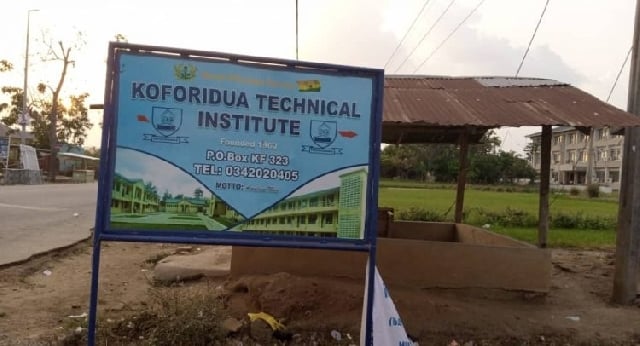The Koforidua Technical Institute (KOTECH) has found itself embroiled in controversy following the dismissal of ten final-year students for alleged tardiness to assembly. The students were reportedly late returning to the assembly grounds from their dormitories, an infraction that resulted in their expulsion from the school and exclusion from ongoing mock examinations. This drastic measure, intended to enforce discipline and punctuality, has ignited debate among parents, education advocates, and the affected students, who argue that the punishment is disproportionately severe, jeopardizing their academic futures. The incident has underscored the complex interplay between maintaining discipline and ensuring academic continuity, particularly in the critical final year of secondary education.
The core issue revolves around the proportionality of the punishment. While the school administration, represented by Vice Principal Mr. Orlando, confirmed the disciplinary action, the rationale behind such a harsh measure for a seemingly minor infraction remains unclear. Expelling students and barring them from crucial mock examinations, especially in their final year, raises concerns about whether the punishment fits the crime. Critics argue that this action not only disrupts the students’ academic progress but also potentially derails their overall academic trajectory, as successful completion of final exams is paramount for their future prospects. The lack of alternative disciplinary measures, such as detention, community service, or even a formal warning, further fuels the debate about the appropriateness of the chosen course of action.
The affected students have publicly appealed to the Ghana Education Service (GES) for intervention, expressing remorse for their tardiness but pleading for a second chance to participate in the mock exams and continue their education. They acknowledge the importance of punctuality and the need for disciplinary measures but contend that the expulsion is excessive and undermines their years of hard work. Their plea highlights the anxiety and uncertainty surrounding their academic future, as the mock exams serve as vital preparation for the final examinations, which are crucial for graduation and further education or employment opportunities.
The incident has brought to the fore the broader discussion about the balance between discipline and academic progress. While maintaining order and instilling values like punctuality are undoubtedly important aspects of the educational process, critics argue that overly punitive measures, especially those that jeopardize a student’s academic future, can be counterproductive. Education stakeholders emphasize the need for a more nuanced approach to discipline, one that considers the specific circumstances, the student’s overall record, and the potential long-term consequences of the punishment. They advocate for restorative justice practices that prioritize rehabilitation and reintegration over exclusion, ensuring that disciplinary actions are not only corrective but also supportive of the student’s educational journey.
The silence from the Ghana Education Service (GES) further complicates the situation. The lack of an official response leaves the students, parents, and the wider community in limbo, uncertain about the future course of action. The GES’s intervention is crucial in mediating the conflict, reviewing the school’s disciplinary procedures, and ensuring that the students’ right to education is protected. A prompt and transparent investigation into the matter is essential to address the concerns raised and establish a framework for handling similar situations in the future. This includes clarifying guidelines on appropriate disciplinary measures, providing avenues for appeal, and ensuring that decisions are made in the best interests of the students’ academic well-being.
The KOTECH incident serves as a stark reminder of the delicate balance required in educational institutions between enforcing discipline and fostering a supportive learning environment. While rules and regulations are necessary for maintaining order and promoting positive values, their implementation must be tempered with understanding, empathy, and a commitment to ensuring that disciplinary actions do not disproportionately impact a student’s academic future. The case highlights the need for clear and transparent disciplinary procedures, accessible avenues for redress, and a focus on restorative justice practices that prioritize rehabilitation and reintegration over punitive measures. The GES’s intervention and subsequent actions will play a crucial role in resolving the current situation and establishing a precedent for handling similar cases in the future, ensuring that disciplinary actions are fair, proportionate, and ultimately serve the best interests of all students.


